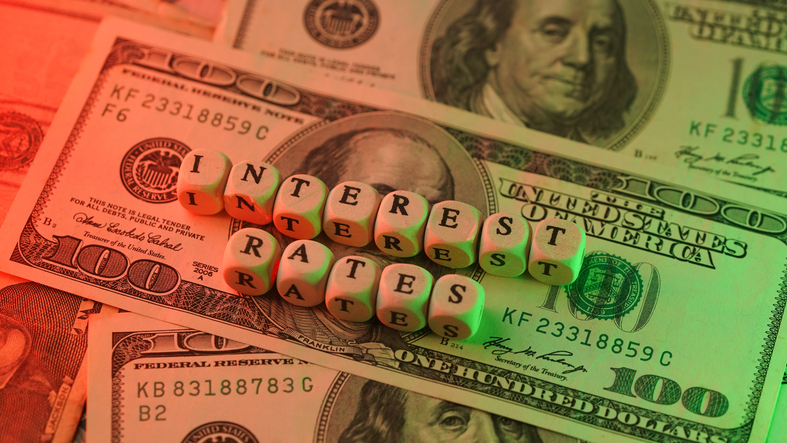Don’t Be a Jerk at Work. (But Don’t Be Too Nice, Either.)
How devolving into people-pleasing can hold back your career
How nice should you be at work?
We’ve supposedly moved on from the era of the militaristic chief executive who barks orders and threats. Most of us agree: We don’t like jerks. Be kind, we implore our kids.
Then we get to the office. We’ve got direct reports to rally, colleagues in other departments to convince and bosses who claim they want honest feedback. Speak with hesitation and you’re ignored. Handle your team with kid gloves and you’re a pushover, not a force to be reckoned with.
“I, personally, think you’re too nice a person to be in the job that you’re in.” That’s what Rep. Greg Murphy (R., N.C.) told Katherine Tai, the lead trade negotiator for the U.S., this spring during a hearing. His comments summed up feedback so many of us, especially women, have heard. We’re too bubbly or kind. We deploy too many apologies or exclamation marks. Yet when we do too little of all that, we’re overly aggressive.
“I want to be a nice person,” Sarah Kleinberg, the director of operations at a healthcare consulting firm, told me. She has realised, though, that being nice often makes others feel good, without actually moving a project forward or prompting a team member to improve.
“You have to have the level of confidence to be beyond people-pleasing,” she says.
‘Customer-service voice’
Many people, desperate not to offend, resort to what speaking coach Samara Bay calls “customer-service voice.” It’s that high-pitched, upspeak-y tone meant to inform the barista, I think you might be out of oat milk?
What are we saying when we use that tone? “I’m not powerful, don’t worry,” Bay says.
Making yourself non intimidating and as small as possible might work earlier in careers, she adds, making the people in charge feel secure. But as we ascend, or try to, the wavering voices can confuse others. Do it enough and people might question whether you’re leadership material, Bay says.
She recommends a vocal exercise for speaking more confidently. Pretend that you’re introducing yourself—“Hi, my name is Rachel”—while throwing a pretend ball against the wall. Match your vocal pitch to the ball’s trajectory. When you throw the ball down to the ground, you’ll hear your voice droop in energy along with the ball. Then throw the ball up, and notice the way your words sound as if you’re half taking them back. Last, throw the ball straight and allow your words to follow through, too.
“It’s the weirdest feeling to say something and mean it all the way to the end,” Bay says. “It feels brave.”
No hedging allowed
When pitching an idea, don’t undercut yourself with hedging language, says Bob Bordone, a negotiations coach. He cringes at questions like: “Would you be willing to consider letting me work remotely on Fridays?”
“It makes me just want to say no because it’s such a weak thing,” he says.
Instead, he says, start with a statement: “I wanted to talk to you about working out a new schedule.” Assure that any agreement you come to would be good for your manager and the company.
When someone tells you no, Bordone suggests trying: “How can we tackle this, even though we see it differently?” You sound strong and assertive, but not nasty, he says.
Good news for the nice guys among us: You don’t have to give up your personality to be taken seriously.
“I’m, 99.9% of the time, a jovial, happy-go-lucky guy,” says Colton Schweitzer, a user-experience designer and educator in Vancouver, Wash. When he doesn’t like the direction a project is going, he pushes back by asking questions and inserting the occasional joke.
“I’m smiling,” he says, “Even when I’m saying, ‘Are you sure about that?’”
Because he’s so pleasant, his serious moments carry weight. At one job, he cheerfully took on more work when colleagues asked—until his manager asked him to pick up the slack for an underperforming employee. He gave a resolute no. His manager dropped the issue, and seemed surprised and impressed by his response, he says.
“It’s like a currency,” he says of invoking a more stern style. “When I use it, it’s really valuable.”
Less yelling, more intensity
To be tough but not jerky, set clear expectations, says Harry Kraemer, a professor of leadership at Northwestern University’s Kellogg School of Management.
Before teaching, Kraemer rose to be chief executive of Baxter International, the healthcare company where he worked for 25 years. As a new manager, he would try to be everyone’s breezy friend, shrugging it off when his team turned in a project hours past deadline. The second time it happened, he devolved into yelling, only to realise he hadn’t made the stakes clear from the start.
“If I focus on being liked, the chance of being respected is very low,” he says.
He adopted a new leadership style of, “I’m not going to surprise you.” He says the yelling just made him look out of control, but following through with consequences worked. When his team missed sales targets, he gathered them for a two-hour debrief—no smiling, his voice intense.
“I don’t need a sorry,” he would tell them. “Hit the number. Do what you told me you were going to do.”
Dinah Davis, a Realtor in Highlands, N.C., still remembers advice an old friend gave her years ago on the golf course. The friend was a skilled neurosurgeon known for being direct, not touchy-feely.
“I have a great bedside manner,” she told Davis. “I just don’t have time for it.”
The advice was freeing for Davis, a former lawyer more comfortable with staunch negotiations than chirpy small talk.
“Do you want your pilot to be nice?” Davis asks. “Or do you want your pilot to get the plane on the ground?”
 Copyright 2020, Dow Jones & Company, Inc. All Rights Reserved Worldwide. LEARN MORE
Copyright 2020, Dow Jones & Company, Inc. All Rights Reserved Worldwide. LEARN MORE
This stylish family home combines a classic palette and finishes with a flexible floorplan
Just 55 minutes from Sydney, make this your creative getaway located in the majestic Hawkesbury region.
When will Berkshire Hathaway stop selling Bank of America stock?
Berkshire began liquidating its big stake in the banking company in mid-July—and has already unloaded about 15% of its interest. The selling has been fairly aggressive and has totaled about $6 billion. (Berkshire still holds 883 million shares, an 11.3% interest worth $35 billion based on its most recent filing on Aug. 30.)
The selling has prompted speculation about when CEO Warren Buffett, who oversees Berkshire’s $300 billion equity portfolio, will stop. The sales have depressed Bank of America stock, which has underperformed peers since Berkshire began its sell program. The stock closed down 0.9% Thursday at $40.14.
It’s possible that Berkshire will stop selling when the stake drops to 700 million shares. Taxes and history would be the reasons why.
Berkshire accumulated its Bank of America stake in two stages—and at vastly different prices. Berkshire’s initial stake came in 2017 , when it swapped $5 billion of Bank of America preferred stock for 700 million shares of common stock via warrants it received as part of the original preferred investment in 2011.
Berkshire got a sweet deal in that 2011 transaction. At the time, Bank of America was looking for a Buffett imprimatur—and the bank’s stock price was weak and under $10 a share.
Berkshire paid about $7 a share for that initial stake of 700 million common shares. The rest of the Berkshire stake, more than 300 million shares, was mostly purchased in 2018 at around $30 a share.
With Bank of America stock currently trading around $40, Berkshire faces a high tax burden from selling shares from the original stake of 700 million shares, given the low cost basis, and a much lighter tax hit from unloading the rest. Berkshire is subject to corporate taxes—an estimated 25% including local taxes—on gains on any sales of stock. The tax bite is stark.
Berkshire might own $2 to $3 a share in taxes on sales of high-cost stock and $8 a share on low-cost stock purchased for $7 a share.
New York tax expert Robert Willens says corporations, like individuals, can specify the particular lots when they sell stock with multiple cost levels.
“If stock is held in the custody of a broker, an adequate identification is made if the taxpayer specifies to the broker having custody of the stock the particular stock to be sold and, within a reasonable time thereafter, confirmation of such specification is set forth in a written document from the broker,” Willens told Barron’s in an email.
He assumes that Berkshire will identify the high-cost Bank of America stock for the recent sales to minimize its tax liability.
If sellers don’t specify, they generally are subject to “first in, first out,” or FIFO, accounting, meaning that the stock bought first would be subject to any tax on gains.
Buffett tends to be tax-averse—and that may prompt him to keep the original stake of 700 million shares. He could also mull any loyalty he may feel toward Bank of America CEO Brian Moynihan , whom Buffett has praised in the past.
Another reason for Berkshire to hold Bank of America is that it’s the company’s only big equity holding among traditional banks after selling shares of U.S. Bancorp , Bank of New York Mellon , JPMorgan Chase , and Wells Fargo in recent years.
Buffett, however, often eliminates stock holdings after he begins selling them down, as he did with the other bank stocks. Berkshire does retain a smaller stake of about $3 billion in Citigroup.
There could be a new filing on sales of Bank of America stock by Berkshire on Thursday evening. It has been three business days since the last one.
Berkshire must file within two business days of any sales of Bank of America stock since it owns more than 10%. The conglomerate will need to get its stake under about 777 million shares, about 100 million below the current level, before it can avoid the two-day filing rule.
It should be said that taxes haven’t deterred Buffett from selling over half of Berkshire’s stake in Apple this year—an estimated $85 billion or more of stock. Barron’s has estimated that Berkshire may owe $15 billion on the bulk of the sales that occurred in the second quarter.
Berkshire now holds 400 million shares of Apple and Barron’s has argued that Buffett may be finished reducing the Apple stake at that round number, which is the same number of shares that Berkshire has held in Coca-Cola for more than two decades.
Buffett may like round numbers—and 700 million could be just the right figure for Bank of America.
This stylish family home combines a classic palette and finishes with a flexible floorplan
Just 55 minutes from Sydney, make this your creative getaway located in the majestic Hawkesbury region.






















